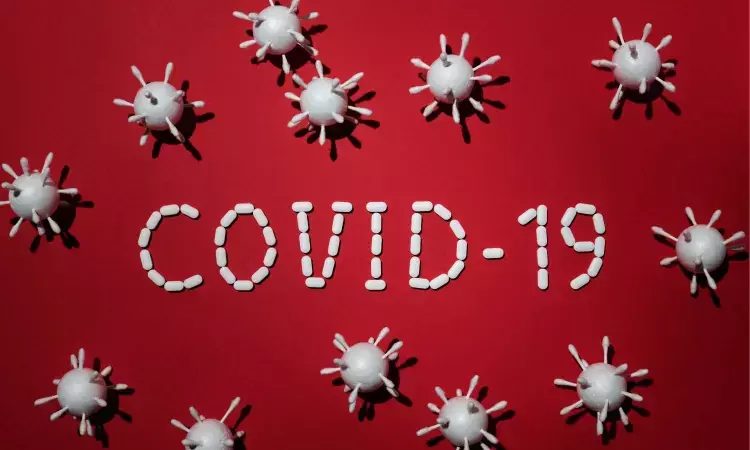- Home
- Medical news & Guidelines
- Anesthesiology
- Cardiology and CTVS
- Critical Care
- Dentistry
- Dermatology
- Diabetes and Endocrinology
- ENT
- Gastroenterology
- Medicine
- Nephrology
- Neurology
- Obstretics-Gynaecology
- Oncology
- Ophthalmology
- Orthopaedics
- Pediatrics-Neonatology
- Psychiatry
- Pulmonology
- Radiology
- Surgery
- Urology
- Laboratory Medicine
- Diet
- Nursing
- Paramedical
- Physiotherapy
- Health news
- Fact Check
- Bone Health Fact Check
- Brain Health Fact Check
- Cancer Related Fact Check
- Child Care Fact Check
- Dental and oral health fact check
- Diabetes and metabolic health fact check
- Diet and Nutrition Fact Check
- Eye and ENT Care Fact Check
- Fitness fact check
- Gut health fact check
- Heart health fact check
- Kidney health fact check
- Medical education fact check
- Men's health fact check
- Respiratory fact check
- Skin and hair care fact check
- Vaccine and Immunization fact check
- Women's health fact check
- AYUSH
- State News
- Andaman and Nicobar Islands
- Andhra Pradesh
- Arunachal Pradesh
- Assam
- Bihar
- Chandigarh
- Chattisgarh
- Dadra and Nagar Haveli
- Daman and Diu
- Delhi
- Goa
- Gujarat
- Haryana
- Himachal Pradesh
- Jammu & Kashmir
- Jharkhand
- Karnataka
- Kerala
- Ladakh
- Lakshadweep
- Madhya Pradesh
- Maharashtra
- Manipur
- Meghalaya
- Mizoram
- Nagaland
- Odisha
- Puducherry
- Punjab
- Rajasthan
- Sikkim
- Tamil Nadu
- Telangana
- Tripura
- Uttar Pradesh
- Uttrakhand
- West Bengal
- Medical Education
- Industry
Genetic predisposition for SLE may protect against severe COVID-19 infection

Some genetic variants may put people at risk of autoimmune diseases while conferring protection against the outcome of viral infection.
David Morris and Timothy Vyse at King's College London, UK, and colleagues have found in a new study that genetic predisposition for systemic lupus erythematosus (SLE) may be protective against severe COVID-19 infection.
The study has been published in open access journal PLOS Genetics.
Scientistshave observed a correlation between the genes associated with severe COVID-19 and those with SLE. In order to locate associated genes and gain insight into the shared genetic effects, researchers compared the genetics of severe COVID-19 with those of SLE using multiple analyses, including an approach that can focus on specific areas of the genome. The authors then accessed data on genes and the structure of the genome obtained from several biomedical databases to understand the biology of the shared genetics.
The researchers found that TYK2, a gene associated with both SLE and severe COVID-19 provides protection against viral infection, but increases risk for autoimmune disease. Future studies will be needed to fully understand the genetic relationships between COVID-19 and other diseases. The study has its limitations, such as the overrepresentation of European ancestry in the datasets used to perform the analyses.
According to the authors, "Our results indicate that there are shared genetic effects between the autoimmune disease SLE and the clinical consequences of COVID-19. The locus with the most evidence of shared association (TYK2) is involved in interferon production, a process that is important in response to viral infection and known to be dysregulated in SLE patients. In seeking to uncover the mechanisms underlying these relationships it was apparent that the functional effects of the risk and protective genotypes are complex."
Dr. David Morris and Professor Timothy Vyse, who led the study, add that "this is an exciting result made possible by the large genetic studies in COVID-19 and Lupus, and opens the door to our understanding of how the biology of the immune system is calibrated to protect us against infection from viruses and other infectious agents, but at the risk of developing autoimmune disease."
Reference:
Wang Y, Guga S, Wu K, Khaw Z, Tzoumkas K, Tombleson P, et al. (2022) COVID-19 and systemic lupus erythematosus genetics: A balance between autoimmune disease risk and protection against infection. PLoS Genet 18(11): e1010253. https://doi.org/10.1371/journal.pgen.1010253
Dr Kamal Kant Kohli-MBBS, DTCD- a chest specialist with more than 30 years of practice and a flair for writing clinical articles, Dr Kamal Kant Kohli joined Medical Dialogues as a Chief Editor of Medical News. Besides writing articles, as an editor, he proofreads and verifies all the medical content published on Medical Dialogues including those coming from journals, studies,medical conferences,guidelines etc. Email: drkohli@medicaldialogues.in. Contact no. 011-43720751


